How does the brain work?
To understand buying behaviour you need to have a basic grasp of how the brain works. There’s nothing straightforward about the brain; it’s a magical, awe inspiring neural engine that beggars belief. Science has come a long way in the past thirty years; we have learned so much about how the brain functions and, more importantly, how it affects our behaviour.
There are two main systems at work in the brain. The primal brain (brain stem & limbic system) and the rational brain (the neocortex).
The primal brain is the oldest – and fastest – part of our brains in evolutionary terms (500 million years in the making) consists of the brain stem, the spinal cord (proto-reptilian brain) and the limbic system. The primal brain is the emotional centre of our brain, where feelings and expressive reactions that are important to the preservation of life – anger, fear, happiness, excitement etc. – are housed. This part of our brain is also responsible for deep seated motivations (instinct, gut reactions) such as a man’s need to protect and fight as well as a woman’s need to nurture.
The vast majority of our decisions are made in the emotional core of our brain and we have virtually no control over them. More than 95% of the decisions we make are made at a subconscious level, and here’s the kicker, this part of our brain can’t read. Yes, the part of your brain that is making all your decisions can’t read. That little nugget changes everything when it comes to marketing and how we structure messages.
The Rational Brain (Neocortex) is the largest, and newest, part of our brain as it’s only 5,000,000 years in development. It is the centre of higher brain functions such as speaking, understanding language, thinking, reading, music, ethics etc. This is essentially our hard drive where inputs are processed and interpreted. It’s sophisticated, but slow. It’s priority is to process decisions already made by the primal brain. In the absence of a convincing (logical) argument, the brain will defer to heuristics (emotions).
Joanne is a fellow of the Royal Chartered Institute of Marketing and has 30+ years of marketing experience. She has worked all around the world, is published in 7 countries and teaches marketing communication theory at Post Graduate level both in the UK and USA. She is an expert in the application of neuromarketing research to everyday marketing and has helped hundreds of organisations transform their results.




